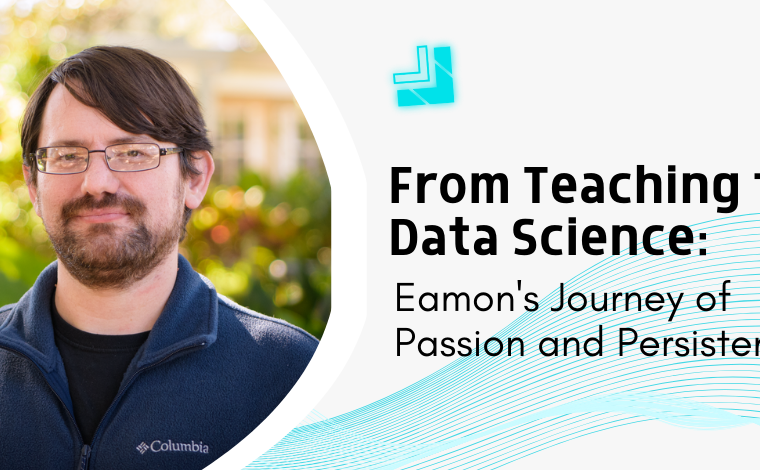Top 7 Tips on Becoming a Data Analyst

Stay Informed With Our Weekly Newsletter
Receive crucial updates on the ever-evolving landscape of technology and innovation.
The demand for data analysts is rising rapidly alongside the exponential growth of global data creation.
With the total amount of data projected to surpass 180 zettabytes by 2025, businesses are increasingly in need of professionals who can interpret this vast amount of complex data to drive strategic decisions.
If you’re considering a career in this exciting field, here are the top 7 tips on becoming a data analyst.
Top 7 tips on becoming a Data Analyst:
#1 Clearly understanding the role of a data analyst

The first of the top 7 tips on becoming a data analyst is to understand the role thoroughly.
A data analyst is a professional who collects, processes, and performs statistical data analyses.
Their ability to interpret data is crucial as it helps businesses to make informed decisions and predict future trends.
As a data analyst, you’ll work with large amounts of data, often referred to as ‘big data‘.
This data can come from various sources, and you’ll need to find ways to organise, analyse, and interpret it to provide clear insights to your employer.
#2 Gain a practical education
The second of the top 7 tips on becoming a data analyst is gaining an applicable education.
Most data analyst roles require a bachelor’s degree in statistics, mathematics, economics, or a related field.
However, the field is becoming more accessible to those with relevant experience and skills, even without a degree.
Many data analysts also have master’s degrees or higher education in related fields.
This is not a prerequisite, but it can give you an edge in the competitive job market.
It’s also worth considering specialised data analysis courses and certifications, which can boost your employability.
For a thorough and immersive education in data science, consider exploring the Institute of Data’s comprehensive Data Science & AI programme.
#3 Acquire the necessary skills
As a data analyst, you must be proficient in programming languages like Python or R for data processing.
Knowledge of structured query language (SQL) is crucial for managing and manipulating databases.
You should also be familiar with data visualisation software such as Tableau or Power BI to present data clearly and interactively.
Moreover, a good understanding of machine learning and statistical models is essential.
These skills will allow you to interpret and analyse complex datasets and make accurate predictions. That is number three of our top 7 tips on becoming a data analyst.
#4 Gain experience

Practical experience is invaluable in the field of data analysis.
Look for internships or entry-level positions where you can apply your skills in a real-world environment.
This will not only help you to understand the practical applications of your skills but also give you a taste of what a career in data analysis involves.
Working on personal projects can also be beneficial.
These could involve analysing a dataset that interests you and drawing conclusions or even creating your own dataset to work with.
This will give you hands-on experience with data collection, cleaning, analysis, and interpretation.
#5 Build a portfolio
A portfolio is a great way to showcase your skills and experience to potential employers.
Include any projects you’ve worked on, detailing the processes you used and the results you achieved.
This could be work you’ve done during your studies, in your job, or personal projects.
Remember to include links to any relevant code or visualisations you’ve created.
This will allow potential employers to see your work in action and understand your approach to data analysis.
#6 Spend time on networking and professional development
Number five of the top 7 tips on becoming a data analyst involves networking.
Networking can open up opportunities and help you learn from others in the field.
Attend industry events, join online communities, and participate in relevant discussions to stay up-to-date with the latest trends and technologies in data analysis.
Continuing professional development is also important.
The field of data analysis is constantly evolving, so it’s important to keep learning and developing your skills.
This could involve taking online courses, attending workshops or reading relevant books and articles.
#6 Prepare for job interviews
When you’re ready to start applying for data analyst roles, it’s important to prepare for job interviews.
This might involve practising common interview questions, researching the company and role, and preparing examples of your work to discuss.
Remember, interviews are not just about proving your technical skills.
Employers will also seek evidence of problem-solving skills, communication abilities and a passion for data analysis.
#7 Stay curious and adapt to change

Finally, the last of the top 7 tips on becoming a data analyst is about adaptability.
A successful data analyst is always curious and adaptable.
The field of data analysis is constantly changing, with new technologies and techniques emerging constantly.
Stay curious, keep learning, and be ready to adapt to new challenges and opportunities.
Conclusion
By following these top 7 tips on becoming a data analyst, you’ll be well on your way to a successful career in this exciting field.
To further explore the top 7 tips on becoming a data analyst, you can download a copy of the Institute of Data’s comprehensive Data Science and AI programme outline for free.
Alternatively, we invite you to schedule a complimentary career consultation with a member of our team to discuss the programme in more detail.





